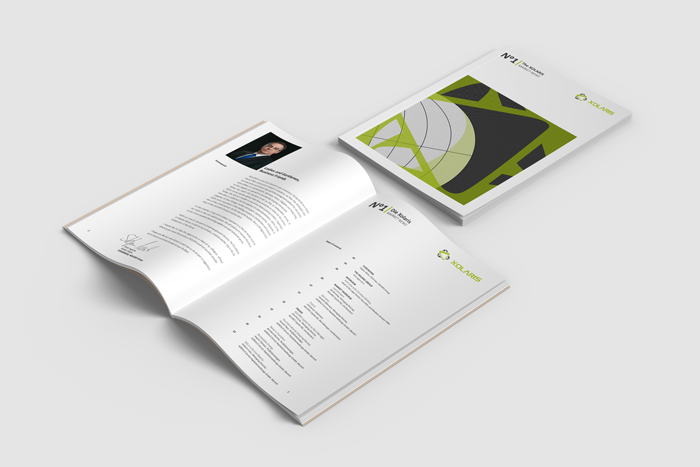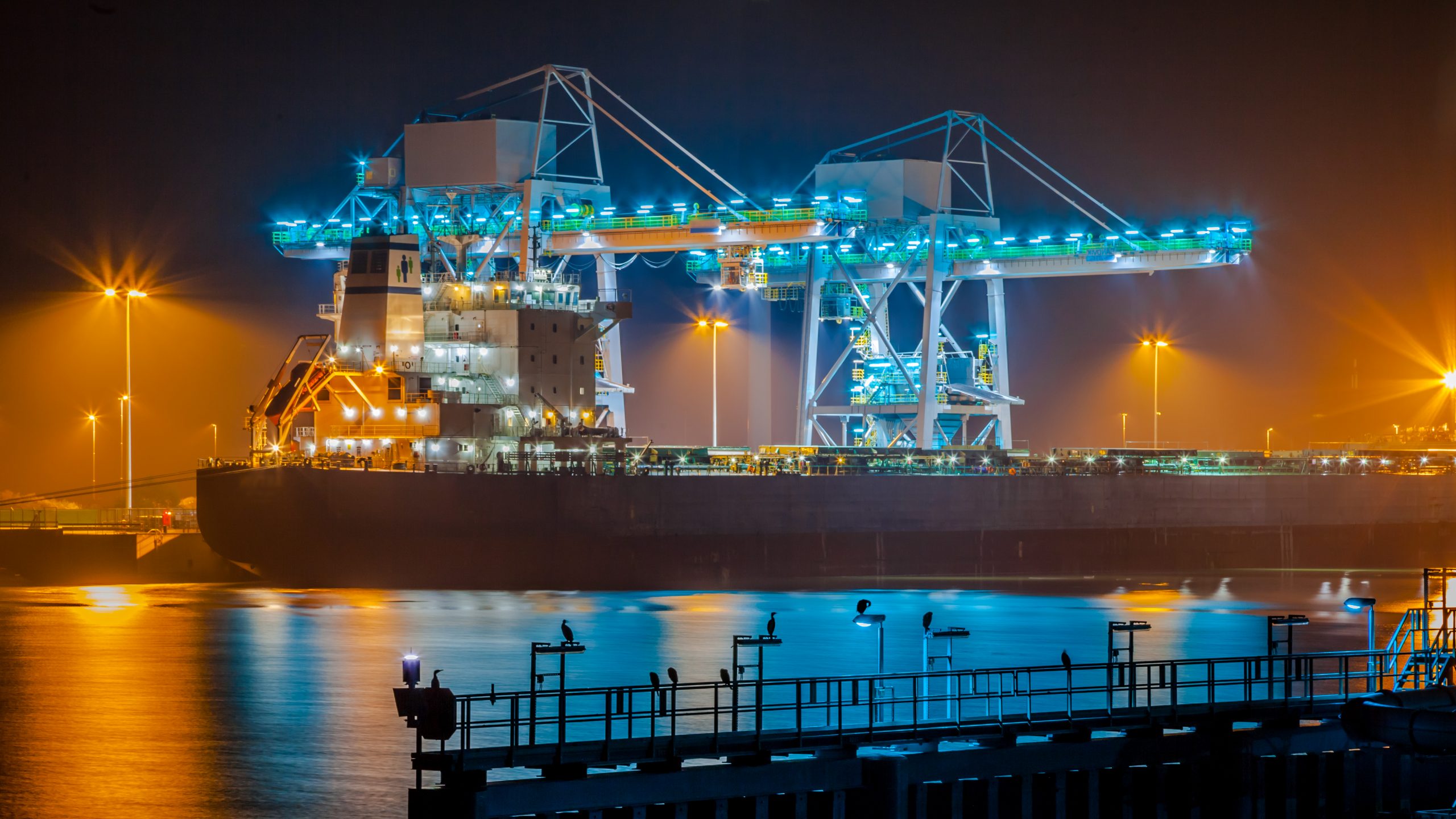XOLARIS Group2023-03-08T10:05:19+00:00
- The Global Economy, Global Trade and Shipping
- The Market for Container Ships
- The Market for Oil and Product Tankers
- The Bulker Market
- The Cruise Market
- Overall Development and Outlook
The International Shipping Market
The Global Economy, Global Trade and Shipping
The development of the global economy, global trade, and global merchant shipping are closely interlinked. Worldwide economic interdependencies and, above all, the distribution of production and manufacturing locations across all continents make shipping an essential element of global trade flows. The importance of maritime trade has increased mainly because of relatively low freight costs. Raw materials, semi-finished and finished products must all be transported as quickly and as cheaply as possible between production sites and sales markets, throughout the world.
Today, water is the most efficient mode of transport. Between 95 and 98% of intercontinental goods traffic therefore already takes place by the sea. Depending on the cargo, container ships, tankers, or bulkers are used for this purpose.
Finally, in the tourism sector, the cruise subsector is also enjoying steadily increasing demand.
After global logistics collapsed almost completely in the spring of 2020 in the wake of the Coronavirus pandemic, – global economic growth plummeted from average annual growth of around 5% to a new low of less than 0% within a very short period of time – although a strong recovery did set in the second half of the year. A good nine months later, the demand for cargo volumes has almost returned to pre-crisis levels and freight costs are now rising rapidly; merchant shipping is running at full speed as it has not done in a way not seen for some time.
The Market for Container Ships
Global trade is no longer imaginable without container ships. Today, more than 70% of all goods traded worldwide are handled by container ships. Containers are perfectly suited for this purpose, as almost everything can be stowed in them that used to be shipped in sacks, boxes or bales before containerization, i.e. up to the mid-1960s.
Container ships are designed and optimized to move standardized transport units. The TEU (Twenty-foot Equivalent Unit), i.e. a twenty-foot standard container, is an internationally standardized unit and is also describes the loading capacity of container ships. The largest container ships are currently around 400 meters in length and have a cargo volume of over 21,000 TEU. Around 6,500 container ships in total are currently in operation worldwide.
The need for container ships and the availability of corresponding cargo volume s are linked closely to the development of the global economy and global trade. As the chart shows, global supply, i.e. the capacity of container ships (measured in available TEU) has developed at an average rate of just under 10% p.a. over the past 30 years. Since 1990, supply has grown from around 400 million TEU to approx. 5,600 million TEU by the end of 2019, which corresponds to a multiple of 14. Although container throughput slumped dramatically in spring 2020, it now appears to be stabilizing again at a high level. In this regard, the effects of the global Coronavirus pandemic hardly seem to have had any lasting impact at all on global trade.
The Market for Oil and Product Tankers
Tankers carry mainly liquids and gaseous substances. Depending on the type of cargo, a distinction exists between crude oil tankers, product tankers, and liquefied gas tankers.
In addition to container ships, oil tankers are an essential element of global trade: almost 100 million barrels of oil are consumed worldwide every day. Once converted, this corresponds to about 180,000 liters of crude oil consumed per second. More than half of this is transported by an oil tanker.
The Bulker Market
Bulk carriers, also called bulkers, are used to transport loose goods such as ore, coal, or grain. The advantage of this type of ship is that it can be used flexibly. At over 50%, the bulk carrier market accounts for the largest share of the total ship market.
The Cruise Market
The cruise market is a growth market. There are currently around 400 ocean-going cruise ships in service worldwide, although most of them are currently not in operation due to the pandemic. Further and, above all, increasingly larger units are set to follow in coming years, according to the current order books, this amounts to at least 50 ships over the next four years.
Overall Development and Outlook
Water transport of goods has enjoyed a growth trend for many years now and according to forecasts will continue to do so. From an ecological and economic point of view, it is the only way to efficiently transport the goods volumes required worldwide. More than 95% of global trade takes place by the sea, with an average of about 12 billion tonnes of goods being moved each year. According to projections, this figure could rise to between 50 and 90 billion tonnes in the next few years. Shipping is therefore a dynamic market that offers lucrative investment opportunities.
Both in the merchant shipping sector and in the cruise market, the issue of environmental protection has become a fundamental component of planning. Ideas range from using low-sulfur heavy fuel oil, which is already required in many places today, to using LNG liquid gas as a way of completely replacing heavy fuel oil (which is controversial), with hydrogen propulsion. Completely new concepts such as replacing ships fabricated from steel with sustainable, lighter materials are also currently under research.
XOLARIS is now in its eleventh year of existence. Having started as a classic back-office outsourcer based in Constance, we have now developed into an international structuring and fund management platform for real assets, with offices in Liechtenstein, Germany, France, Singapore and Hong Kong.
In this regard, our growth is consistently breaking new ground.
When we made the decision to set up KVG, an independent service, in 2014, many people agreed that there would be no market for this service.
Today, the ManCo market is one of the fastest growing markets. Expansion into Asia in 2018 laid the foundations for internationalisation, which, in the capacity of first foreign market participant, reached another milestone in 2020, with relocation of the holding company to Liechtenstein and acquisition of the AIFM licence. As the next AIFM location, Paris is the logical next step of the XOLARIS Group’s success story.
In this context, it was and is always important to us that we remain true to our roots in the real asset business. We will continue to maintain this focus as we move towards becoming a global real asset investment group.
With our new CI, we want to break new ground in this area. The first edition of Market News as well as our podcasts, constitute another step in the development of the Group.
I would like to take this opportunity to thank all my colleagues, without whose great work the success of XOLARIS would not have been possible.
I hope you like our new format as well. Even so, we are open to suggestions and criticism and look forward to your feedback.



